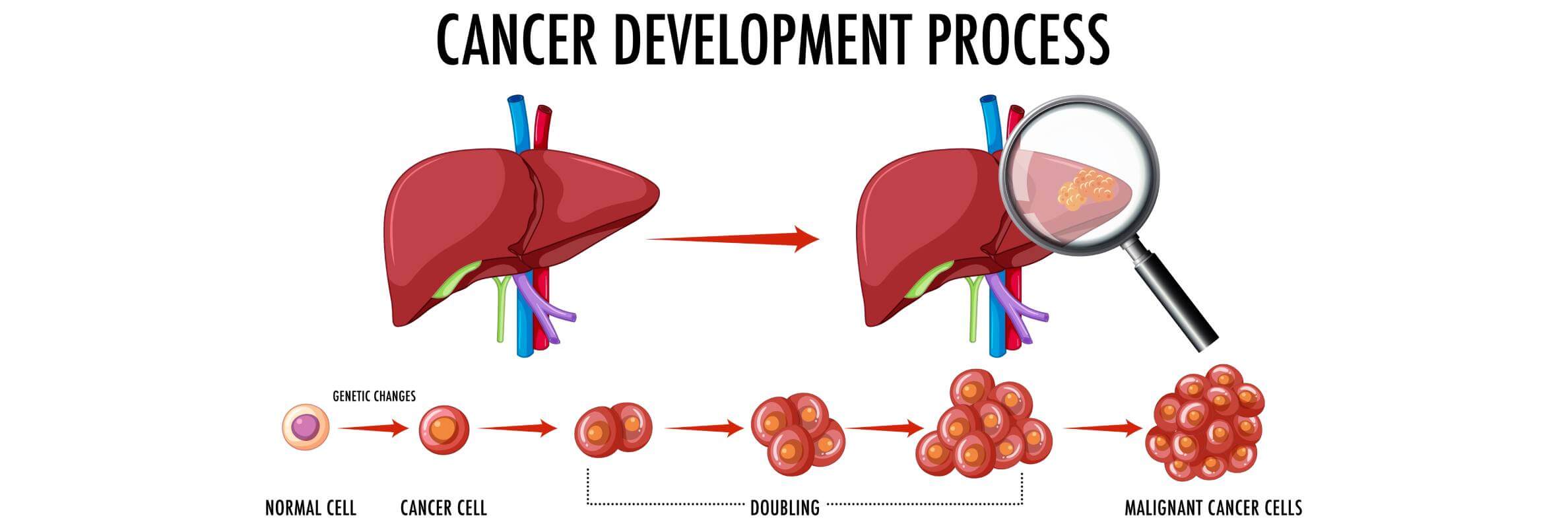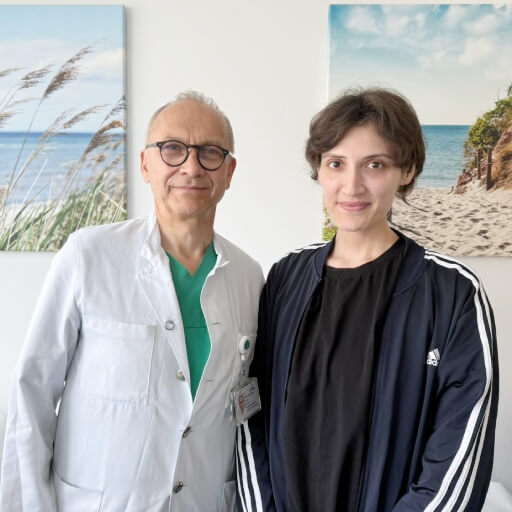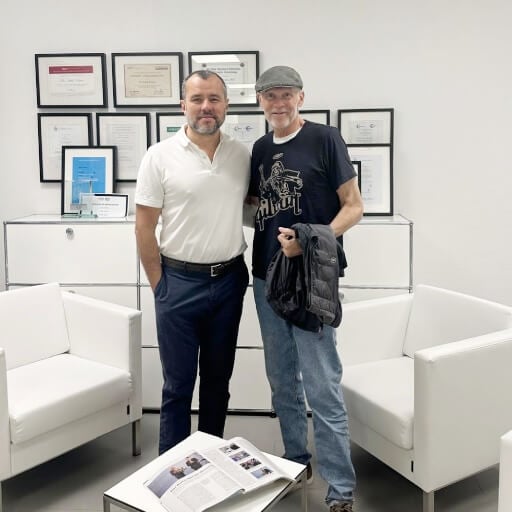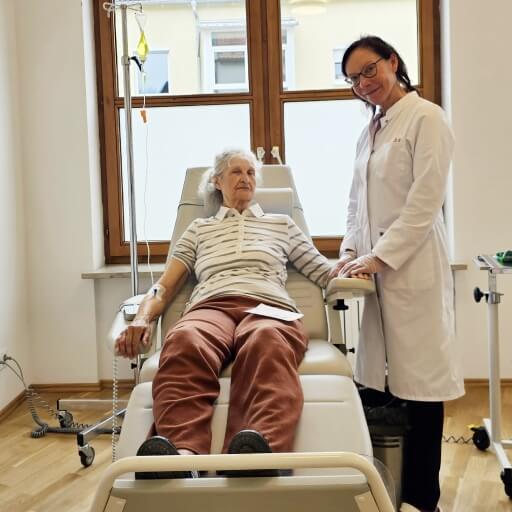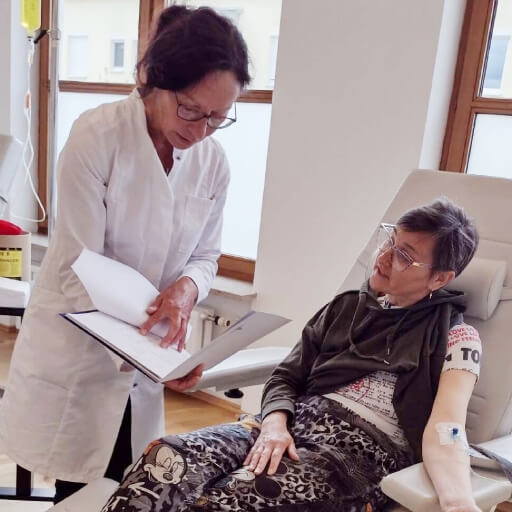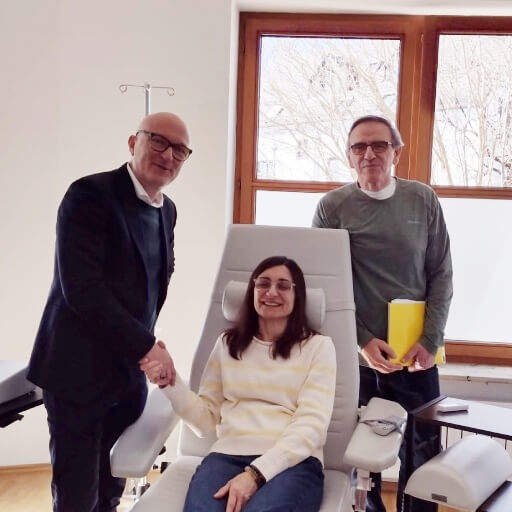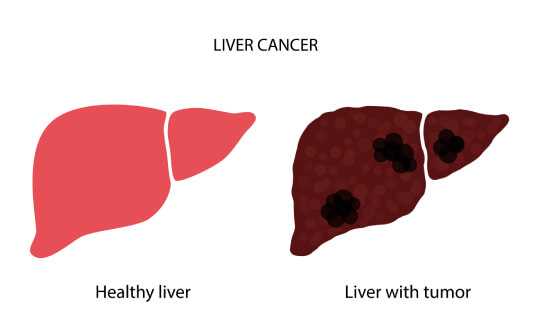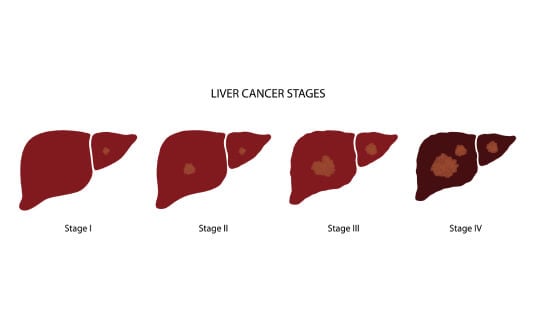Liver cancer is a significant global health challenge, ranking among the top causes of cancer-related deaths worldwide. In 2020 alone, approximately 905,700 new cases were diagnosed, and about 830,200 deaths were attributed to the disease. [1]
In Germany, liver cancer, while less prevalent compared to some other countries, still poses a serious health concern. Annually, around 9,500 new cases are reported, with nearly 8,000 deaths resulting from the disease. The 5-year survival rate for liver cancer patients in Germany is approximately 14% for women and 18% for men. [2]
Germany is considered a leader in liver cancer treatment. The country offers advanced therapies and excellent medical facilities. Moreover, Germany's healthcare system is known for its integration of innovative technologies, highly skilled medical professionals, and a patient-centered approach to care.
Why Choose Germany for Liver Cancer Treatment?
Germany has a reputation as one of the leading choices for individuals seeking effective liver cancer treatment worldwide.
The main reasons to choose Germany for liver cancer treatment include:
- Advanced technologies and innovative therapies: German medical centers are equipped with modern technologies that facilitate precise diagnostics and effective treatments.
- High success rates: Multidisciplinary treatment approaches and personalized care plans contribute to better survival rates and higher quality of life.
- Accessibility for foreign patients: Many German hospitals accept international patients who are self-paying or have international medical insurance.
- Comprehensive medicine and holistic care: Treatment in Germany addresses all aspects of patient health, combining medical therapies with psychological support, nutritional counseling, and rehabilitation, ensuring overall well-being during and after treatment.
Overview of Liver Cancer
Liver cancer, or hepatic cancer, is a significant global health concern, ranking as the sixth most common cancer and the third leading cause of cancer-related deaths worldwide. In 2022, approximately 866,136 new cases were diagnosed globally, with a higher incidence in men than women. [3, 4]
Types of liver cancer:
- Hepatocellular carcinoma (HCC): The most common type, accounting for about 75-85% of all liver cancers. It originates from hepatocytes, the main liver cells. [5]
- Intrahepatic cholangiocarcinoma: A cancer that arises from the bile ducts within the liver, representing approximately 10-15% of primary liver cancers. [5]
Risk factors include:
- Chronic infections with hepatitis B or C viruses
- Excessive alcohol consumption
- Non-alcoholic fatty liver disease (NAFLD)
- Exposure to aflatoxins (toxins from certain molds)
- Obesity and diabetes
- Genetic disorders like hemochromatosis
Common symptoms include:
- Unintentional weight loss
- Loss of appetite
- Upper abdominal pain or swelling
- Jaundice (yellowing of the skin and eyes)
- Fatigue and general weakness
Early detection of liver cancer is crucial, as it significantly increases the chances of successful treatment. Moreover, regular screening is recommended for individuals at high risk, such as those with chronic liver diseases.
Liver Cancer Treatment Options in Germany
Surgical Options for Liver Cancer
Surgical intervention is the primary treatment of liver cancer, particularly in its early stages. In Germany, two surgical approaches are employed: partial hepatectomy and liver transplantation.
- Partial hepatectomy (liver resection): This procedure involves the removal of the cancerous portion of the liver. It is typically indicated for patients with a single tumor, no metastasis, and sufficient liver function. In Germany, the 5-year survival rate following liver resection for HCC ranges from 30% to 63%, depending on various factors including tumor size and liver function. [6]
- Liver transplantation: For patients with early-stage HCC who meet specific criteria (such as the Milan criteria), liver transplantation offers a potential cure. In Germany, the 5-year overall survival rate post-transplantation is approximately 65%, with a recurrence-free survival rate of about 70%. [7]
It is necessary to mention that surgical options are most effective for patients diagnosed at an early stage, without metastasis, and with adequate liver function. However, advanced techniques of liver cancer surgery in Germany contribute to favorable outcomes in liver cancer treatment for all stages of the disease.
Local Therapies for Liver Cancer
Local therapies are essential in the management of liver cancer, especially for patients who are not candidates for surgery. These treatments target tumors directly, minimizing damage to surrounding healthy tissue.
Thermal ablation techniques, including radiofrequency ablation (RFA) and microwave ablation (MWA), utilize heat to destroy cancer cells. RFA employs high-frequency electrical currents, while MWA uses electromagnetic waves to generate heat. These methods are most effective for small tumors (typically less than 3 cm in diameter) and are minimally invasive, often performed on an outpatient basis. Studies have shown that RFA can achieve complete response rates exceeding 90% for tumors smaller than 3 cm, with 5-year survival rates ranging from 40% to 60%. [8]
Transarterial chemoembolization (TACE) is a procedure that delivers chemotherapy directly to the liver tumor via the hepatic artery, followed by the injection of embolic agents to block blood flow, thereby trapping the chemotherapy in the tumor. This method is beneficial for patients with unresectable tumors. Clinical studies have reported median survival times of approximately 17 months post-TACE, with improved outcomes in patients achieving significant tumor size reduction. [9]
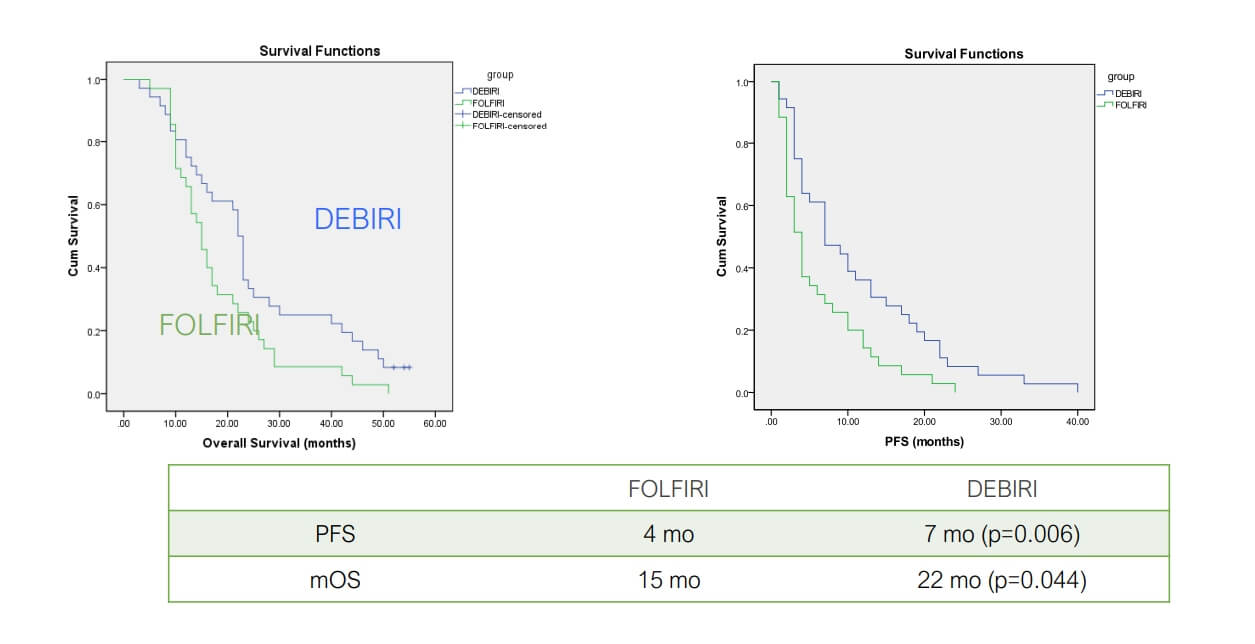
Aliberti C et al Ancancer Res 2011;31:4581
Richardson A et al J Vasc Interv Radiol 2013;24:1209
Hyperthermia therapy involves raising the temperature of tumor tissues to enhance the efficacy of other treatments like chemotherapy and radiation. By increasing tumor temperature to around 40-43°C, hyperthermia can induce cancer cell death and improve drug delivery. While still under investigation, hyperthermia has shown promise as a complementary therapy in liver cancer treatment. [10]
Dendritic cell therapy is an advanced immunotherapy that involves harvesting a patient's dendritic cells, exposing them to tumor-specific antigens, and reintroducing them into the body to stimulate a targeted immune response against cancer cells. The discovery of dendritic cells and their role in adaptive immunity was made by Dr. Ralph Steinman, for which he was awarded the 2011 Nobel Prize in Physiology or Medicine. This innovative treatment approach has demonstrated safety and potential efficacy in HCC patients, with studies reporting partial responses and disease stabilization. For example, a study observed a 1-year overall survival rate of 40.1% among patients receiving immunotherapy based on dendritic cells. [11]
Systemic Treatments for Liver Cancer
Systemic therapies are essential for managing advanced or metastatic liver cancer, particularly when local treatments are insufficient. Germany offers access to the latest systemic treatments through advanced protocols and participation in international clinical trials.
Traditional chemotherapy remains an option for patients with advanced stages of liver cancer. It involves administering cytotoxic drugs that target rapidly dividing cancer cells throughout the body. Although chemotherapy's overall effectiveness is limited compared to other treatments, it can still offer survival benefits and symptom control in selected patients. The average median survival with chemotherapy in advanced cases remains modest, ranging from 8.2 to 14.8 months. [12] Yet, new combinations and supportive care continue to improve outcomes.
Targeted therapies are designed to block specific molecular pathways responsible for cancer growth and progression. They offer a more focused treatment approach compared to traditional chemotherapy, helping to limit damage to healthy cells. [13] Germany's oncology centers utilize advanced diagnostic techniques to personalize targeted therapy based on tumor characteristics, improving overall survival rates and patient quality of life.
Immunotherapy works by enhancing the body's natural immune response to recognize and attack cancer cells. New immunotherapy strategies, such as immune checkpoint inhibition, have shown improved survival outcomes and are increasingly integrated into treatment plans. Germany's participation in ongoing clinical trials ensures that patients have early access to the latest immunotherapeutic advancements.
Cost of Liver Cancer Treatment in Germany
| Therapy Type | 2-Year Survival Rate | Response Rate | Duration | Side Effects |
|---|---|---|---|---|
| Standard Treatment | ~25% for advanced cancer | Less than 10% | Several cycles | Severe (nausea, fatigue, hair loss, immunosuppression, skin irritation) |
| Innovative Methods | ~60% for advanced cancer | ~45-65% | Up to 4 sessions | Mild (localized discomfort) |
*Booking Health data
Medical Procedures Costs for Liver Cancer
| Treatment Methods | Germany* | Great Britain | USA |
|---|---|---|---|
| Standard Treatments | €80,000 - €150,000 full course | €90,000 - €165,000 full course | €100,000 - €180,000 full course |
| Innovative Methods | €25,000 - €60,000 full course | €70,000 - €120,000 full course | €100,000 - €150,000 full course |
*Prices may vary depending on the course of treatment and tumor characteristics
Best Hospitals for Liver Cancer Treatment in Germany
Patients seeking advanced liver cancer treatment in Germany can choose from several excellent medical centers known for their exceptional care. Below is an overview of some of the leading hospitals.
| Hospital Name | Location | Certifications and Specializations |
|---|---|---|
| Asklepios Hospital Barmbek | Hamburg | Certified Competence Center for Liver Surgery (DGAV-certified); minimally invasive liver surgery; certified by the German Cancer Society (DKG) |
| WEGE Clinic Bonn | Bonn | Advanced radiation therapies; transarterial chemoembolization; personalized oncology programs |
| University Hospital of Ludwig Maximilian University of Munich (LMU Klinikum) | Munich | Comprehensive Cancer Center (CCC Munich); liver brachytherapy; multidisciplinary liver cancer programs |
Asklepios Hospital Barmbek, located in Hamburg, is a leading institution for liver cancer treatment in Germany. The German Society for General and Visceral Surgery (DGAV) recognizes it as a Competence Center for Surgical Diseases of the Liver. The hospital offers advanced surgical procedures, including minimally invasive techniques guided by computer-assisted navigation systems. Therapeutic options include chemotherapy, radiofrequency ablation, and TACE, tailored to each patient's specific condition. In addition, the hospital holds certifications from the German Cancer Society (DKG) and adheres to international quality standards, ensuring high-quality care for liver cancer patients.
WEGE Clinic is located in Bonn. It is a leading center for the treatment of tumor diseases, including liver cancer. The clinic's Department of Radiation Therapy and Radiation Oncology offers modern radiation therapies, including intensity-modulated radiation therapy (IMRT), volumetric modulated arc therapy (VMAT), stereotactic radiation therapy, and brachytherapy. In addition, the clinic provides TACE, an approach that enhances treatment efficacy and reduces systemic side effects. Moreover, the WEGE Clinic's multidisciplinary approach ensures that each patient receives personalized care tailored to their specific condition.
University Hospital of Ludwig Maximilian University of Munich, commonly known as LMU Klinikum, is one of Europe's largest medical centers. Its Comprehensive Cancer Center Munich (CCC Munich) is known for delivering exceptional care to patients with liver cancer. The center offers a full spectrum of services, including diagnostics, surgical interventions, liver transplantation, interventional radiology, immunotherapy, and molecular targeted therapy. It is important to note that LMU Klinikum offers liver brachytherapy, a procedure that involves placing radioactive sources directly into or near the liver tumor. In addition, the hospital's interdisciplinary teams collaborate to develop individualized treatment plans, ensuring that each patient benefits from the latest medical advancements and a holistic approach to care.
How to Start Liver Cancer Treatment in Germany?
Starting liver cancer treatment in Germany is a straightforward process, especially with proper preparation. International patients typically need to prepare essential documents, including recent medical records, imaging results (CT, MRI), pathology reports, and a summary of previous treatments.
The first step is to choose a hospital and submit your documents for evaluation. Organizations like Booking Health can simplify this process by helping patients select the best hospital, organize medical consultations, assist with visa arrangements, and provide support throughout the treatment journey.
Our services include:
- Assessment and analysis of medical reports
- Development of the medical care program
- Selection of a suitable treatment location (with multiple locations available)
- Preparation of medical documents and forwarding to a suitable clinic
- Preparatory consultations with clinicians for the development of medical care programs
- Professional advice during the hospital stay
- Follow-up care after the patient returns to their native country after completing the medical care program
- Taking care of formalities as part of the preparation for the medical care program
- Coordination and organization of the patient's stay in a foreign country
- Assistance with visas and tickets
- A personal coordinator and interpreter with 24/7 support
- Transparent budgeting with no hidden costs
Booking Health offers certified services, ensuring that patients gain access to top German hospitals without any administrative issues. Our expertise makes it easier for international patients to start treatment quickly and efficiently.
Contact Booking Health today to receive a personalized treatment plan and begin your journey toward advanced liver cancer care in Germany!
Cancer Treatment Abroad: Patient Experiences with Booking Health
Frequently Asked Questions About Liver Cancer Treatment in Germany
Send request for treatmentGermany's advanced treatment programs have significantly improved outcomes. For early-stage liver cancer, the 5-year survival rate can reach 60-70% after surgery or transplantation. Survival rates are continually improving due to innovative therapies and multidisciplinary care in leading German hospitals.
The costs of liver cancer treatment in Germany vary based on the method chosen. On average, treatments range from €20,000 to €50,000, depending on complexity. Comprehensive treatment packages often include diagnostics, surgery or therapies, and hospital stay.
Several German hospitals specialize in liver cancer treatment. Leading institutions, such as Asklepios Hospital Barmbek Hamburg, WEGE Clinic Bonn, and University Hospital of Ludwig Maximilian University of Munich (LMU Klinikum), are recognized for their expertise, certified programs, and multidisciplinary oncology teams.
Yes, German hospitals actively welcome foreign patients who are self-paying or have international medical insurance.
Yes, advanced-stage liver cancer can be treated in Germany using systemic therapies, local treatments like TACE, and innovative clinical trial programs. German hospitals offer personalized treatment plans even for complex cases.
Let’s start from Germany: standard treatment costs €80,000-€150,000 for the full course, while innovative methods cost €25,000-€60,000. In Great Britain corresponding numbers are €90,000-€165,000 and €70,000-€120,000. When it comes to the USA, we see €100,000-€180,000 and €100,000-€150,000 respectively.
The 2-year survival rate for advanced disease is around 25% – with standard treatment. What important, innovative methods achieve approximately 60% and nowadays, survival rates improve due to innovative therapies in German hospitals.
Talking about the advanced disease, response rate for standard treatment is under 10%. Innovative methods raise this indicator to 45-65% and innovative approaches – TACE, dendritic cell therapy, targeted therapies – are more beneficial for patients.
Standard treatment for liver cancer requires repeated cycles over months; innovative methods can involve fewer sessions.
Standard treatment causes severe side effects: nausea, fatigue, hair loss, immunosuppression, and skin irritation. Innovative methods are easier to tolerate: they typically cause only mild side effects.
Leading hospitals in Germany are as follows: Asklepios Hospital Barmbek in Hamburg, WEGE Clinic Bonn, University Hospital of Ludwig Maximilian University of Munich (LMU Klinikum) with a Comprehensive Cancer Center.
Liver cancer treatment in Germany is selected based on tumor stage and liver function. It may include: liver surgery, interventional radiology procedures, targeted therapy and dendritic cell immunotherapy – these methods are often combined to achieve better tumor control.
Leading hospitals for liver cancer treatment in Germany include: Asklepios Hospital Barmbek, WEGE Clinic Bonn and LMU Klinikum Munich – offering multidisciplinary liver cancer programs.
Choose treatment abroad and you will for sure get the best results!
Authors:
This article was edited by medical experts, board-certified doctors Dr. Nadezhda Ivanisova, and Dr. Bohdan Mykhalniuk. For the treatment of the conditions referred to in the article, you must consult a doctor; the information in the article is not intended for self-medication!
Our editorial policy, which details our commitment to accuracy and transparency, is available here. Click this link to review our policies.
Sources:
[1] World Health Organization. International Agency for Research on Cancer. Number of New Cases and Deaths from Liver Cancer Predicted to Rise by More than 55% by 2040 – IARC. Published 2022. https://www.iarc.who.int/news-events/number-of-new-cases-and-deaths-from-liver-cancer-predicted-to-rise-by-more-than-55-by-2040/
[2] Robert Koch Institut. Cancer in Germany: Liver.
[3] World Cancer Research Fund. Liver Cancer Statistics. Published 2024. https://www.wcrf.org/preventing-cancer/cancer-statistics/liver-cancer-statistics/
[4] Chinese Medical Journal. Global Epidemiology of Liver Cancer 2022: An Emphasis on Geographic Disparities. https://journals.lww.com/cmj/fulltext/2024/10050/global_epidemiology_of_liver_cancer_2022__an.6.aspx
[5] ScienceDirect. Current Status and New Directions for Hepatocellular Carcinoma Diagnosis. https://www.sciencedirect.com/science/article/pii/S2542568424000680?via%3Dihub
[6] Springer Nature Link. The role of resection in hepatocellular carcinoma BCLC stage B: A multi-institutional patient-level meta-analysis and systematic review. https://link.springer.com/article/10.1007/s00423-024-03466-x
[7] European Journal of Surgical Oncology. Changes of long-term survival of resection and liver transplantation in hepatocellular carcinoma throughout the years: A meta-analysis. https://www.ejso.com/article/S0748-7983(24)00004-0/fulltext
[8] Chinese Clinical Oncology. Thermal ablation for hepatocellular carcinoma: what’s new in 2019. https://cco.amegroups.org/article/view/33396/27367
[9] Canadian Journal of Gastroenterology. Transarterial Chemoembolization in Patients with Hepatocellular Carcinoma: Predictors of Survival. https://onlinelibrary.wiley.com/doi/10.1155/2011/864234
[10] Antioxidants. Hyperthermia Treatment as a Promising Anti-Cancer Strategy: Therapeutic Targets, Perspective Mechanisms and Synergistic Combinations in Experimental Approaches. https://www.mdpi.com/2076-3921/11/4/625
[11] Cancers. Dendritic-Cell-Vaccine-Based Immunotherapy for Hepatocellular Carcinoma: Clinical Trials and Recent Preclinical Studies. https://www.mdpi.com/2072-6694/14/18/4380
[12] Chinese Medical Journal. A novel chemotherapy strategy for advanced hepatocellular carcinoma: a multicenter retrospective study. https://journals.lww.com/cmj/fulltext/2022/10050/a_novel_chemotherapy_strategy_for_advanced.10.aspx
[13] Reuters. Geneos cancer vaccine shrinks liver tumors in small trial. https://www.reuters.com/business/healthcare-pharmaceuticals/geneos-cancer-vaccine-shrinks-liver-tumors-small-trial-2024-04-07/
Read:
Innovative solutions for the treatment of liver cancer and liver metastases
Article menu:
- Why Choose Germany for Liver Cancer Treatment?
- Overview of Liver Cancer
- Liver Cancer Treatment Options in Germany
- Cost of Liver Cancer Treatment in Germany
- Best Hospitals for Liver Cancer Treatment in Germany
- How to Start Liver Cancer Treatment in Germany?
- Frequently Asked Questions About Liver Cancer Treatment in Germany
Don't know where to start?
Contact Booking Health